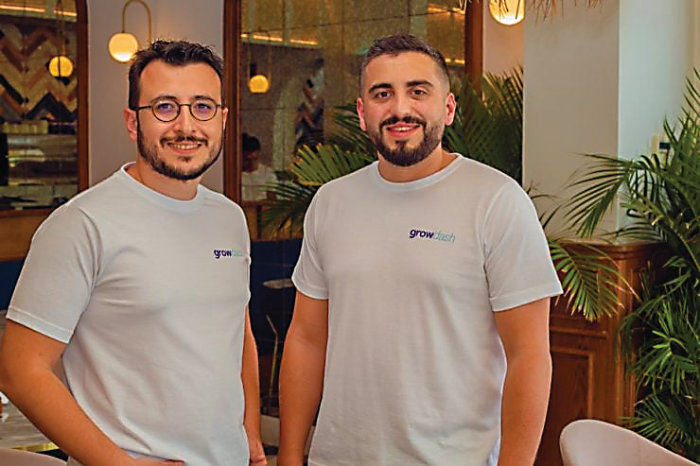CAIRO: Saudi Arabia’s startup ecosystem has affirmed its leading position in the funding space, capturing over 53 percent of the region’s venture debt financing in 2023, according to MAGNiTT’s latest report.
The venture data platform revealed that Saudi startups raised a total of $400 million in venture debt last year, a 602 percent growth compared to $57 million in 2022.
Venture debt is a type of financing for early-stage companies that complements equity funding. It includes growth capital for expansion, equipment financing for asset acquisition, and accounts receivable financing for managing cash flow.
The Middle East and North Africa region saw a total of $757 million in venture debt financing in 2023, a 262 percent year-on-year growth.
The UAE followed Saudi Arabia with a total of $353 million in financing in 2023, a 222 percent yearly increase. Egypt came in third with $4 million, an 86 percent annual drop.
In terms of deal count, the Emirates leads the region with six transactions, indicating a 25 percent yearly decrease; Saudi Arabia with four, a 100 percent annual increase, and Egypt with two and a 75 percent year-on-year drop.
Fintech emerged once again as the sector of choice for investors, accumulating $601 million in financing, a 325 percent yearly increase.
Buy now, pay later giants Tabby and Tamara drove the sector’s triple-digit growth, amassing $600 million of fintechs’ total financing.

Founded in 2022 by Sean Trevaskis and Enver Sorkun, Growdash uses software solutions to boost restaurants’ marketing and operational efforts. (Supplied)
This is mainly due to the subsector’s capital-intensive nature and the growing demand for consumer credit financing tools.
Transport and logistics came in second with $150 million in venture debt, a 162 percent YoY increase, and e-commerce with $3 million, a 57 percent drop.
The leading investors by capital deployed were mainly foreign, with the top three from the US, namely, Goldman Sachs, Partners for Growth, and Atalaya, followed by CoVentures from South Africa and Shorooq Partners from the UAE.
Agritech startup iyris closes $16m series A round
Riyadh and Dubai-based agritech startup iyris, formerly known as RedSea, closed a $16 million series A funding round led by US-based Ecosystem Integrity Fund with support from Global Ventures, Dubai Future District Fund and Kanoo Ventures as well as Globivest, and Bonaventure Capital.
Founded in 2018 by Ryan Lefers, Mark Tester, and Derya Baran, iyris offers advanced commercial farming solutions for low to mid-tech farmers in hot climates worldwide.
Proceeds will enhance sales coverage and bolster iyris’ international sales pipeline for SecondSky greenhouse covers and nets.
Additionally, the funds will drive the development of innovative heat-blocking products and resilient plant genetics.
This investment underscores iyris’ dedication to empowering farmers to sustainably mitigate climate change impacts, address food security concerns, and achieve key UN Sustainable Development Goals.
BIM Ventures and SBI Holdings launch $100m joint investment fund
Saudi Arabia-based VC studio BIM Ventures has partnered with Japan’s SBI Holdings to launch a $100 million joint investment fund aimed at supporting Saudi startups.
The fund will provide startups with funding, expert guidance, and mentoring throughout their establishment and growth phases.
The memorandum of understanding for the fund was signed during the Saudi-Japan Vision 2030 Business Forum, under the auspices of the Ministry of Investment of Saudi Arabia.
UAE’s Growdash closes $1.8m seed round
Dubai-based foodtech software as a service solution Growdash closed $1.8 million in a seed funding round led by Oryx Fund and Oraseya Capital.
Founded in 2022 by Sean Trevaskis and Enver Sorkun, the company uses software solutions to boost restaurants’ marketing and operational efforts.
UAE foodtech startup GrubTech secures $15m in series B funding
UAE-based foodtech startup GrubTech has raised $15 million in its series B round, an extension of series A led by Jahez and including participation from Addition and Hambro Perks Oryx Fund.
Founded in 2019 by Mohamed Al-Fayed, Omar Rifai, and Mohamed Hamedi, GrubTech is a software integration and unified commerce platform that provides restaurants and cloud kitchens with software solutions to streamline operations.
TVM Capital Healthcare closes $250m Afiyah Fund
UAE-based healthcare private equity firm TVM Capital Healthcare has closed a $250 million Afiyah Fund LP.
The fund was led by JADA, a Public Investment Fund company, along with a group of Saudi, Gulf, and European investors.
The Afiyah Fund aims to support domestic and international health tech startups entering the market, with a focus on the key medical priorities of Saudi Vision 2030.
TVM Capital plans to mobilize $400 to $500 million in the Saudi healthcare sector, with anticipated co-investment offers from its LP base.
Proptech startup Holo secures pre-series A funding
UAE-based proptech startup Holo has raised an undisclosed amount in a pre-Series A funding round led by Dubai Future District Fund and Oryx Fund, with participation from Aditum Investment Management Limited.
Launched in 2020 by Michael Hunter and Arran Summerhill, Holo offers digital mortgage services that simplify the process of owning a home by allowing buyers and homeowners to explore refinancing options.
Holo plans to use the new capital to strengthen its market position in the UAE, grow its team, and expand its reach across the Gulf region, with an immediate focus on Saudi Arabia.
In February 2023, Holo closed a seven-figure seed round.
Shorooq Partners announces first close of $100m credit fund
UAE-based alternative investment manager Shorooq Partners has announced the first close of its $100 million second private credit fund.
The fund was established in collaboration with Korea’s IMM Investment Global, which joined as a minority partner.
The fund will assist MENA-based startups with an average ticket size of $10 million in sectors such as manufacturing, industrials, financing, and software services.
Founded in 2017 by Mahmoud Adi, Shane Shin, and Kunal Savjani, Shorooq Partners is an alternative investment manager across MENA.
Its first credit fund, now fully deployed, has invested in companies like Pure Harvest and Tamara.





















